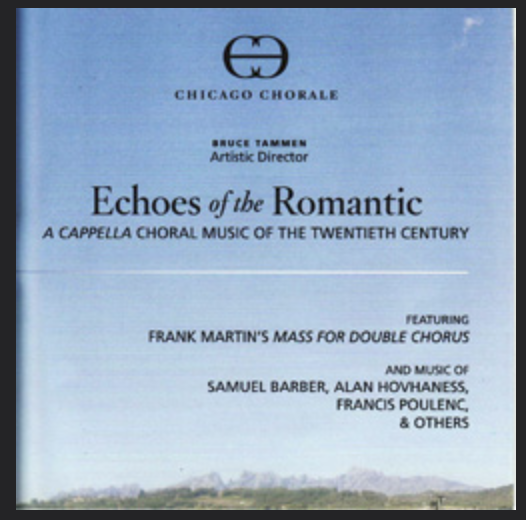Listen
“The level of execution would have been impressive even coming from a professional chorus.”
One of Chorale’s signature works is Russian composer Rodion Shchedrin's masterpiece, The Sealed Angel, for unaccompanied chorus and oboe. Composed in 1988, just as the Soviet era was disintegrating and restrictions on religious art were beginning to relax, Shchedrin's work bridges Russia's Orthodox past and future, acknowledging the great religious works of Rachmaninoff, Gretchaninoff, and Chesnokov, while carrying them forward into a more modern idiom.
Reviewing the concert preparation recorded for this CD, Lawrence Johnson wrote in Chicago Classical Review, "Friday night’s performance of The Sealed Angel offered one of the most transcendent, beautifully sung and immaculately directed choral performances of this or any other year. This revelatory and transcendent evening was the top Chicago performance of 2012.”
“We Breathe Your Name” features a historical panorama of choral works, from Thomas Tallis’ Lamentations of Jeremiah and motets by Renaissance masters Orlando di Lasso and Francisco Guerrero, to works by such twentieth century composers as Randall Thompson, Johann Nepomunk David, Pavel Chesnokov, and Stephen Paulus.
Recorded in 2005, in the incomparable acoustic of the Benedictine Monastery of the Holy Cross, it demonstrates Chorale’s early commitment to the carefully balanced and blended sonorities of a broad range of a cappella repertoire, and sensitivity to historically informed performance, as interpreted by a modern, mixed choir.
O crux is excerpted from a live recording of “Northern Lights,” a concert which included works by Edvard Grieg, Nils Lindberg, Jan Sandström, Otto Olsson, Knut Nystedt, Einohani Rautavaara, Arvo Pärt, and Urmas Sisask. The Scandinavian and Baltic choral traditions, especially in the twentieth century, are among the strongest and most immediately identifiable traditions in the modern musical world; and Chorale’s conductor, Bruce Tammen, a descendant of Norwegian immigrants, studied at Luther College (a bastion of Norwegian heritage in Northeast Iowa), and has sung extensively in Scandinavia. This background enables him to bring an idiomatic authenticity in approaching this Nordic repertoire. Lawrence Johnson wrote of this concert, “Tammen’s program was both ambitious and adventurous, taking us from Grieg up to Arvo Part. Yet his singers assayed the various challenging languages, including Norwegian, Swedish and Estonian, with extraordinary clarity and what sounded (to non-expert ears) like genuine idiomatic engagement."
The “Echoes of the Romantic” CD is built around Chorale’s recording of Frank Martin’s Mass for Double Chorus. Works on the recording have a decidedly romantic, brooding sensibility for the period in which they were composed-- might in fact have been considered somewhat anachronistic in their time, though we no longer hear them in the same way today. Both of the excerpts here reflect the nationalistic aspect of romanticism. Kristallen den fina is a quodlibet: a compositional procedure in which separate melodies and texts, sometimes from strikingly different traditions, are artfully combined to create a new and meaningful whole. Gunnar Eriksson has combined three melodies in his piece—“Kristallen den fina,” a modal Swedish folk tune; “Världens Frälsare kom här,” a Swedish translation of the Lutheran chorale “Nun komm der heiden Heiland”; and “O Kriste, du som ljüset är,” a translation of the Gregorian hymn “Christe, qui lux est et dies”—and added a newly composed bass line with words from the folk song. Aleksandr Kastalsky’s Gladsome Light is a liturgical work from the early twentieth century, composed under the nationalist influence of the Moscow Synodical School in the years immediately preceding the Russian Revolution.




